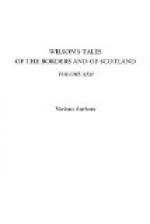“Something to tell me, Rachel!” continued he; “and what may that be?”
“My father has told me to-day,” replied she, “that he is to leave me all his fortune; and however grieved I may be at the thought of losing him, I am glad to think that it may be in my power to be of service to you, Paul, as my only relative on my mother’s side.”
“Service,” muttered Paul to himself, while he looked into her face as wistfully as a lover, which indeed he was, though in secret. “And what is to become of Walter Grierson?” he asked.
“When he finds that the entire fortune is mine,” replied she, “he will propose to marry me; and this is what my father wishes to bring about by putting the fortune in my power.”
“So the events crop out from the long chain of causes,” thought Paul; “but who shall tell the final issue? Look here, Rachel,” he continued, as he laid his hand on a golden locket which lay before him in the shape of a heart, “I have made this to order;” and as he spoke he touched a spring, whereupon a lid opened, and up flew a pair of tiny doves, which, with fluttering wings of gold and azure, immediately saluted each other with their long bills, and piped a few notes in imitation of the cushat. The touch of another spring immediately consigned them again to the cavity of the heart,—a conceit altogether of such refined manufacture and ingenuity of design, as to remind us of the saying of Cicero, that there is an exquisiteness in art which never can be known till it is seen fresh from the hand of genius.
“And who ordered that beautiful thing?” inquired Rachel.
“Walter Grierson,” replied Paul, fixing his eyes upon her sorrowfully, as if he felt oppressed by that gloomy theory of his.
Nor did he fail to perceive the effect his few words had produced upon the heart of his cousin, where there was a fluttering very different from that of cooing turtles; for the fate of her happiness seemed to her to be suspended on the answer to a question, and that question she was afraid to put.




